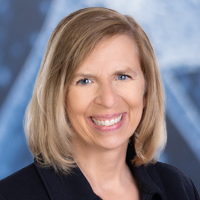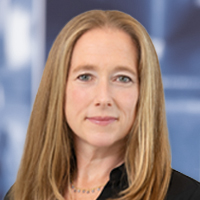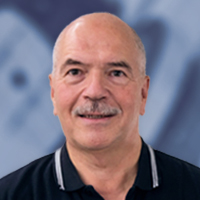17 Mar 2026
08:00 - 10:00
Esteemed industry luminaries from Coherent, NVIDIA and Tesat-Spacecom will headline the event Tuesday, 17 March, 08:00 - 10:00 at the JW Marriott next to the Los Angeles Convention Center. These distinguished speakers will explore cutting-edge technologies and provide invaluable insights into the evolving landscape of optical networking and communications.
Speakers
-

Julie Sheridan Eng
Coherent, United States
AI is driving a new wave of innovation in optical interconnects, accelerating new technology development and deployment within the data center and the broader communications network. This talk will examine market dynamics and key technological advances in lasers and modulators, transceivers, co-packaged optics, and optical circuit switches, enabling higher bandwidth density and energy efficiency within the data center. It will also highlight advances in coherent optics and transport technologies that are enabling scalable, high-capacity data center interconnect (DCI) and communications networks.
Dr. Julie Sheridan Eng is Chief Technology Officer (CTO) of Coherent. Prior to becoming CTO, Dr. Eng served as Senior Vice President and General Manager of the Optoelectronic Devices and Modules Business Unit.
Before Coherent, Dr. Eng held various senior management positions at Finisar Corporation, including Executive Vice President and General Manager of 3D Sensing, and Executive Vice President of Datacom Engineering. Over the 15 years she managed datacom transceiver engineering, her teams production-released hundreds of fiber optic transceiver products and achieved numerous industry firsts. Dr. Eng began her career at AT&T Bell Laboratories/Lucent/Agere. She is a Fellow of Optica and a member of the National Academy of Engineering.
Dr. Eng holds a B.A. degree summa cum laude in Physics from Bryn Mawr College and a B.S. degree in Electrical Engineering with honors from the California Institute of Technology (Caltech). She earned M.S. and Ph.D. degrees in Electrical Engineering from Stanford University.
-

Alexis Bjorlin
NVIDIA, United States
Training at the future million-GPU scale requires significant advancements in compute, memory (scale-up) and networking (both scale-up and scale-out). Concurrently, human-like, chain-of-reasoning based iterative inferencing — as opposed to zero-shot answers — requires extremely low latencies and reduced energy consumption per answer.
The massive networking challenges are being addressed by optical innovations, including CPO, with micro-ring modulators, 3D-stacked silicon photonics engines, high-power lasers and detachable fiber connectors. This technology collectively promises substantial improvements in power efficiency, network resiliency and speedier deployment versus existing methods.
Dr. Alexis Bjorlin is Senior Vice President, AI Infrastructure. She also currently serves on the board of directors at Global Semiconductor Association (GSA).
Prior to NVIDIA, Alexis was Vice President of Infrastructure at Meta, where her team was responsible for Infrastructure hardware/software co-designed systems, including AI Systems, compute and storage platforms and custom Silicon. Prior to Meta, she served as Senior Vice President and General Manager of Broadcom Optical Systems Division and previously was Corporate Vice President of the Data Center Group and General Manager of the Connectivity Group at Intel, where she oversaw three business units: Ethernet/Networking, High Performance Computing Fabrics and Silicon Photonics. Prior to Intel, she spent eight years as President of Source Photonics, where she also served on the board of directors.
Alexis earned a B.S. in Materials Science and Engineering from Massachusetts Institute of Technology and a Ph.D. in Materials Science from the University of California at Santa Barbara.
-

Siegbert Martin
Tesat-Spacecom, Germany
It began in 2000 with an inspiration to develop communication systems in space with laser technology. Fast forward to today, and optical networks in space are becoming a substantial, resilient solution for worldwide communication — either serving as a backup solution to terrestrial data networks or as an independent extension.
Significantly lower launch costs and other developments are leading to the deployment of satellite constellations of unprecedented scale. Laser-based communications between satellites offer several advantages over conventional RF links, but challenges too. Operators have recently demonstrated successful laser-based inter-satellite communications at scale, and the industry is now examining the technology for optical links to the ground, Quantum Key Distribution (QKD) and packet-based routers. This talk will examine how the industry got to this point and the exciting new opportunities it is creating.
Dr. Siegbert Martin is Chief Technology Officer at Tesat-Spacecom. Tesat is a subsidiary of Airbus (formerly EADS) and develops, produces and tests communications payloads for satellites, including laser communications.
Dr. Martin’s career has been concentrated in terrestrial and satellite communication networks, spanning microwave and optical technologies. He has held positions at Bosch Telecom, Marconi, Ericsson, and has been with Tesat-Spacecom since 2007. Dr. Martin has a Ph.D. from Open University in Hagen, Germany.
